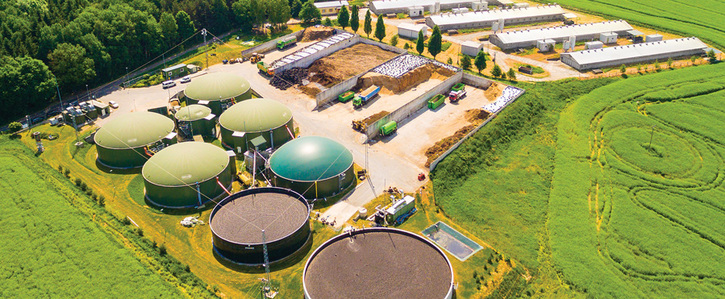100 signatures reached
To: Irish government
Bring in National Safety, Odour, and Environmental Regulations for Biogas AD Plants in Ireland

Biogas anaerobic digestion (AD) plants are being proposed all across Ireland — but there are no national rules governing odour, minimum distances from homes and wells, industrial waste acceptance, or even proximity to motorways.
Communities are being left unprotected. We’re calling on the Government to introduce clear national regulations before more unsafe or poorly planned AD sites are approved.
Why is this important?
Anaerobic digestion (AD) and biogas can play a positive role in Ireland’s renewable energy transition — but only when properly regulated. Unfortunately, Ireland currently lacks the basic national standards that other EU countries already require.
As a result, AD plants are being proposed far too close to homes, private wells, schools, farms, rivers, Natura sites, and even busy motorways. Local authorities have no consistent guidance, and communities are left exposed to unnecessary health, safety and environmental risks.
The Problem
1. No minimum setback distances
Ireland has no national separation distances between AD plants and:
- homes
- drinking-water wells
- schools
- roads and motorways
- protected habitats
Other countries use 300–500m as standard — Ireland uses none.
2. No national odour standards
Odour from digesters, waste reception, and digestate tanks can travel long distances depending on wind and elevation. Ireland has:
- no odour regulations
- no odour-modelling requirement
- no mandatory odour-abatement technology
Communities near existing plants frequently report persistent nuisance.
3. Risks to private wells and groundwater
Many homes rely on private wells. AD sites store large quantities of slurry, digestate, industrial food waste, and fats/oils/grease. A spill or leak can contaminate groundwater. Ireland has no minimum distance from wells and no hydrological protection rules.
4. Proximity to motorways and road-safety concerns
AD plants store methane, biogas and large waste volumes. Without national TII guidance, sites can be placed only metres from national roads and motorways — raising concerns about:
- tanker traffic
- vehicle fires
- collision risks
- gas leaks
- spill containment
This is a major planning gap.
5. Industrial waste accepted with little oversight
Many AD plants take:
- offal
- dairy processing waste
- food-industry by-products
- fats, oils, grease (FOG)
- expired packaged food
These greatly increase odour, emissions, and risk. Ireland has no national limits, no composition standards, and weak monitoring.
WHAT WE ARE ASKING FOR
We call on the Minister for the Environment, the EPA, TII, and the Department of Housing to create national AD biogas regulations, including:
✔️ Minimum 500m setback distance
From homes, schools, and private wells, unless independent scientific assessment proves otherwise.
✔️ National odour limits
With mandatory odour-modelling, abatement systems, and compliance monitoring.
✔️ Groundwater and well protection
Hydrological assessments, protected zones, and strict containment standards.
✔️ Rules for industrial waste
Clear permitted-waste lists, composition limits, and independent monitoring.
✔️ Road-safety guidelines
National TII rules for AD plants near major roads and motorways.
✔️ A full national AD planning framework
Like those already existing for windfarms, quarries, and intensive agriculture — ensuring safety, consistency, and transparency.
⸻
WHY THIS MATTERS
Ireland needs renewable energy — but we also need safe, responsible, and properly regulated development. Right now, communities across Ireland are being forced to fight these issues one planning application at a time, without the protection of national rules.
A clear regulatory framework would protect:
• public health
• groundwater and private wells
• road safety
• rural communities
• local wildlife and habitats
• quality of life
We urgently need the Government to act.
CALL TO ACTION
Sign now to demand strong national regulations for biogas AD plants — to keep our homes, water, and communities safe.
